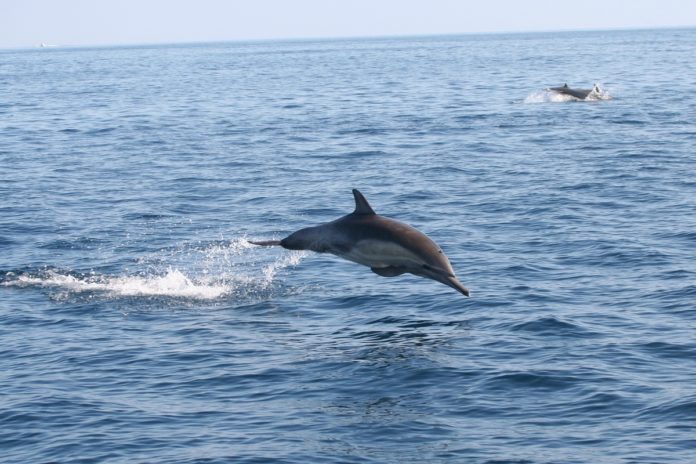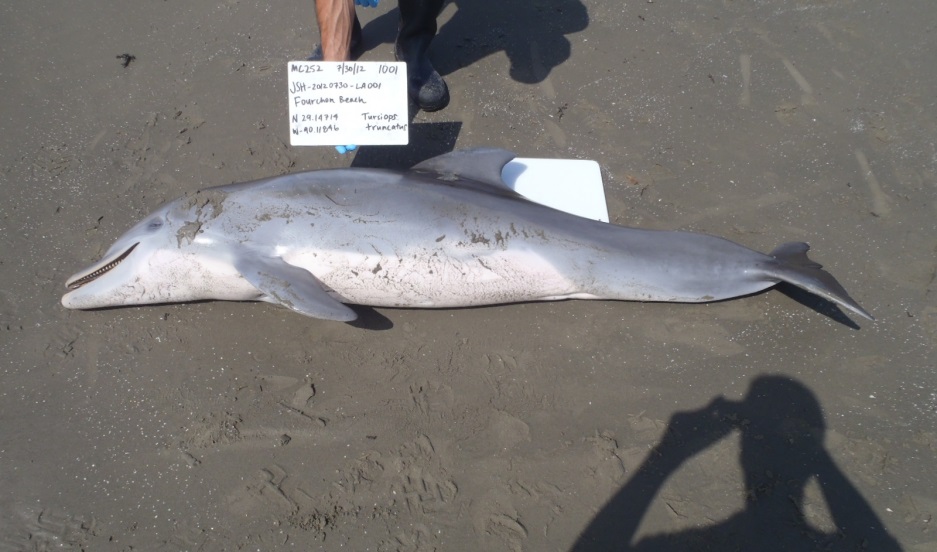
A recent study has revealed a conclusive link between the 2010 BP Deepwater Horizon oil spill and the high numbers of lifeless dolphins washing up along the Gulf’s northern coast.
From the 20th of April 2010, the date of the spill, to 2012, more than a thousand dolphins were found dead along the Gulf of Mexico. This number is four times higher than the region’s usual rate of dolphin deaths. According to the study, bottlenose dolphins in Louisiana, Mississippi, and Alabama suffered an “unusual mortality event” between February 2010 and 2014.
Part of the National Oceanic and Atmospheric Administration’s Deepwater Horizon National Resource Damage Assessment, the study’s team of 22 researchers compared tissue samples from the deceased dolphins found along the northern Gulf of Mexico, to tissue from dolphins not found within the affected area. Tissue samples were taken from 22 dolphins found at Louisiana’s Barataria Bay, one of the most affected coastal areas following the oil spill disaster. From this, scientist discovered that the dolphins found dead within the affected oil spill area had lung and adrenal lesions commonly associated with petroleum product exposure; of the non-affected dolphins only 2 percent had this lesion. Damage to the adrenal cortex— the region of the brain which regulates essential body functions like metabolism and blood pressure —-was also noted in the affected dolphins.
Stephanie Venn-Watson , the study’s lead author and veterinary epidemiologist at the National Marine Mammal Foundation, has said “We found that dolphins dying after the oil spill had distinct adrenal gland and lung lesions that were not present in the stranded dolphins from other areas”.
Kathleen Colegrove, the study’s lead veterinary pathologist based at the University of Illinois, further added, the dolphins found within the oil spill zone “had some of the most severe lung lesions I have seen in the over 13 years that I have been looking dead dolphin tissues from throughout the U.S.”.
Since the study’s release, BP has disputed its findings. Geoff Morrell, Spokesman for BP said “The data we have seen thus far, including the new study from NOAA, do not show that oil from the Deepwater Horizon accident caused an increase in dolphin mortality”.
It is expected that several other studies focusing on dolphin-related issues will provide more evidence to support this theory.
The Times-Picayune reports:
When complete, in about 16 to 18 months, the results of the studies will be added to other information being gathered as part of the federal Natural Resource Damage Assessment, required under the Oil Pollution Act of 1990.Federal and state trustees and BP will then determine whether projects can be put in place to restore wildlife, including dolphins, or to compensate for their loss.
The region and the species within it are struggling to survive, even five years after the disastrous BP spill occurred. The National Wildlife Federation has even released a report that estimated that at least 20 various species are still suffering the effects of the spill and with the full extent of the damage unlikely to be seen for years, there is no telling how much damage has been incurred.
You want to support Anonymous Independent & Investigative News? Please, follow us on Twitter: Follow @AnonymousNewsHQ





